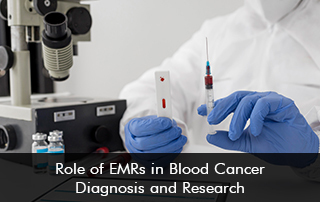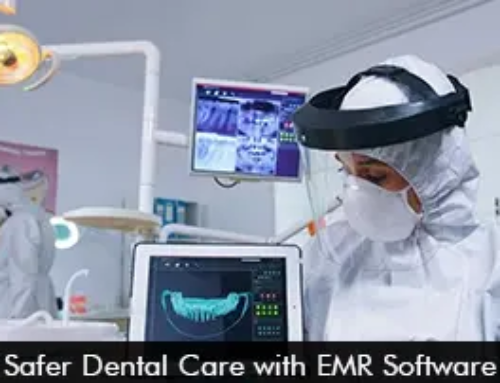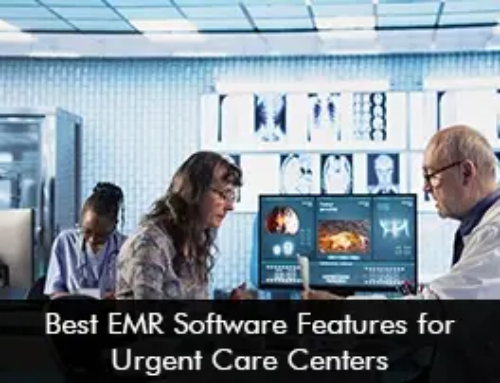Blood cancers, including leukemia, lymphoma, and myeloma, pose significant challenges due to their complex nature and the necessity for early and accurate diagnosis. The advent of Electronic Medical Records (EMR) has transformed the landscape of medical diagnostics and research. EMRs provide a centralized and comprehensive patient data repository, enabling healthcare providers to make more informed decisions and researchers to conduct more effective studies. This blog delves into how EMRs enhance the diagnosis and research of blood cancers, highlighting their benefits and addressing the associated challenges.
Types of Blood Cancer
-
Leukemia:
Affects the blood and bone marrow, leading to the production of abnormal white blood cells.
-
Lymphoma:
Originates in the lymphatic system, impacting lymph nodes and other organs.
-
Myeloma:
Targets plasma cells in the bone marrow, affecting the body’s immune response.
Importance of Early Diagnosis
- Early detection is crucial for effective treatment and improved survival rates.
- Symptoms such as fatigue, fever, and unexplained weight loss are often vague, complicating early diagnosis.
Role of EMR in Diagnosis
-
Data Collection:
EMRs compile detailed patient histories, lab results, and imaging studies, providing a holistic view of the patient’s health.
-
Symptom Tracking
Continuous tracking of symptoms and health changes aids in identifying patterns indicative of blood cancer.
-
Diagnostic Tools Integration:
Seamless integration with diagnostic tools ensures timely and accurate results.
Automated alerts for abnormal findings and reminders for follow-up tests enhance proactive patient care.
Role of EMR in Research
-
Data Aggregation:
EMRs aggregate vast amounts of patient data, facilitating large-scale studies and clinical trials.
-
Patient Monitoring:
Real-time monitoring of patient outcomes and treatment responses provides valuable insights for research.
-
Data Sharing:
EMRs enable secure data sharing among researchers and institutions, fostering collaboration and innovation.
-
Real-time Data:
Access to real-time data ensures that research findings are current and relevant.
Benefits of EMR in Blood Cancer Management
- Personalized Treatment: EMRs support personalized treatment plans based on comprehensive patient data.
- Improved Communication: Enhanced communication between healthcare providers and patients leads to better care coordination.
- Efficiency: Reduces administrative burdens, allowing healthcare providers to focus more on patient care.
- Data Security: Ensures secure storage and access to sensitive patient information, complying with privacy regulations.
Challenges and Considerations
- Data Privacy: Protecting patient data privacy and ensuring compliance with regulations is paramount.
- Interoperability: Achieving seamless integration of EMR systems across different healthcare providers remains a challenge.
- Data Quality: Ensuring high-quality and accurate data entry is essential for reliable diagnosis and research.
- Training: Adequate training for healthcare providers is necessary to maximize the benefits of EMR systems.
The integration of EMRs in the diagnosis and research of blood cancers has brought about significant advancements in patient care and medical research. By providing a comprehensive and real-time view of patient data, EMRs enhance the accuracy of diagnoses, support personalized treatment plans, and facilitate groundbreaking research. As technology continues to evolve, the potential for EMRs to further improve outcomes for blood cancer patients is immense, making them an indispensable tool in the fight against these complex diseases.








